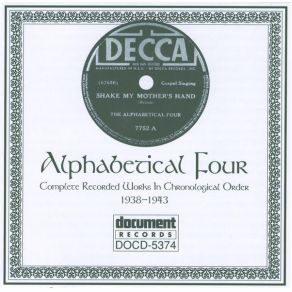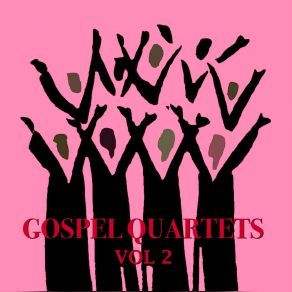Alphabetical Four
Wikimp3 information about the music of Alphabetical Four. On our website we have 2 albums and 6 collections of artist Alphabetical Four. You can find useful information and download songs of this artist. We also know that Alphabetical Four represents Blues genres.
Biography
[Edit]Based in New York City, the Alphabetical Four were a high-quality black gospel quartet firmly rooted in the Jubilee style of singing, much like their better-known contemporaries the Golden Gate Quartet. From a recording standpoint, the group was fairly prolific, turning out 14 singles for Decca between 1938 and 1943. They also recorded four more sides for Decca, which have remained unreleased. The Alphabetical Four centered around Emory Johnson, who normally provided lead vocals for the group, and was also the group's musical arranger. In addition to Johnson, other known personnel include Curtis Brown (tenor), Johnny Pierce or Asher Short (baritone), and a bass identified only as "Lockwood". On most of their recordings, a guitar is also heard behind their vocals.
The group employed the technique of imitating instruments with their voices, similar to groups like the Golden Gate Quartet, the Mills Brothers, and the Four Vagabonds. The Alphabetical Four used this technique quite effectively on a number of their songs such as "Precious Lord, Take My Hand" the Thomas Dorsey standard, and "When the Moon Goes Down in the Valley of Time," both 1938 Decca releases. They were fond of using a "wah-wah" pseudo-trumpet sound, which was put to good effect on their conclusion of "What a Friend We Have in Jesus," another of their 1938 Decca releases. In 1940, the group returned to the studio and recorded six more sides for Decca. Their selections for these sessions favored songs that were staples with the various quartets of the day. Notable in this group of songs were "Go Down Jonah ad Serve the Lord," "The Book of the Seven Seals," "Go Where I Send Thee," and "Do Not Pass Me By."
On several of their recordings, the group appears to have added a female lead voice. Some feel that this is actually one of the male group members singing in a falsetto voice. There are six tracks in question, all recorded at the same session on April 7, 1941, and released by Decca that same year. Among these tracks, "We Will Understand It Bye And Bye," "Sleep on Darling Mother," and "I Can't Feel at Home in This World Anymore" stand out, and sound like a female is singing the lead. The group's overall sound on these releases is quite different then their previous recordings. The final 1943 Decca release of the Alphabetical Four , "I'm Gonna Walk Right in and Make Myself at Home" backed with "The Sun Didn't Shine" sounds more like their pre-1941 recordings, with a definite male lead.
With the number of recordings the group issued, they were fairly well-known in gospel circles and toured regularly on the church circuit; they also made radio appearances. However, unlike most of their peers, the group had the distinction of appearing in film. The group (without Johnson) can be seen and heard in 1940's Paradise in Harlem, where they provide backup vocals to singer Mamie Smith on "Lord ! Lord ! (Because I Love You)." Issued by Jubilee films, Paradise In Harlem featured an all-black cast and was targeted at black audiences in the chitlin' circuit theaters. Titled "Because I Love You," the song from the film was also issued as a "soundie," a short film that was played on a video jukebox, a precursor to music videos. The Alphabetical Four's 28 released Decca tracks are available on a CD from the Austrian-based Document Records.
Collections
Title: Gospel Songs Of Praise
Genre: Gospel
Title: Praise and Glory 60 Gospel Greatest Hits
Genre: Gospel
Title: Blues, Blues Christmas, Vol. 2
Genre: Blues, Traditional Pop Music
Title: Blues, Blues Christmas Vol. 2 1926-1958 (CD2)
Genre: Blues
Title: Gospel: The Absolutely Essential 3 CDCollection (CD2)
Genre: Gospel









